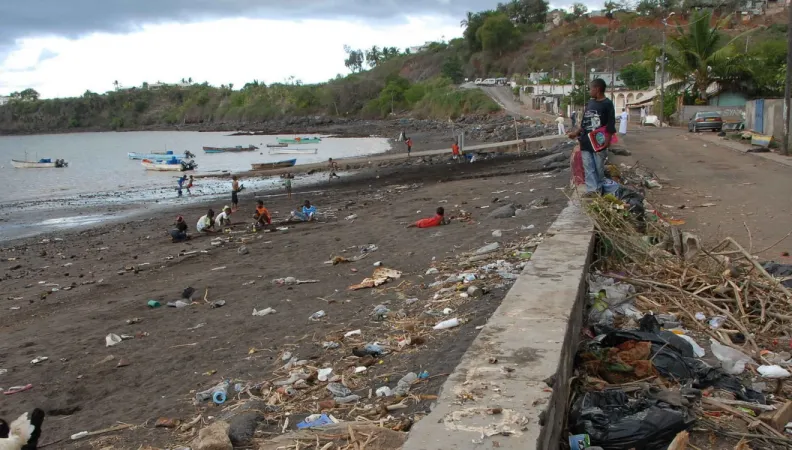Share the page
Supporting Civil Society Organizations outside mainland France
Published on

How can we best support regional cooperation and international solidarity initiatives led by French Civil Society Organizations (CSOs) based outside mainland France? The CORÉOM program, co-financed by AFD and the Fondation de France, and implemented by La Guilde and local partners, will support 16 organizations following a call for projects launched in September 2024.
CSOs overseas
Article originally published on September 25, 2024 and updated on February 6, 2025.
An educational garden in Suriname supported by a French Guianese association, an urban sports project in South Africa initiated by a Réunion-based association…These are just a couple of the 16 projects that have been selected as part of the Overseas Regional Cooperation program (CORÉOM).
Covering themes such as health, environmental preservation, gender, culture, sports, and Education for Citizenship and International Solidarity, these projects will be launched in February 2025 across 13 different countries.
Stéphanie Gaymard, project manager for Agronomy, Environment, and Climate at AFD, shares more about the CORÉOM program and the solutions available to support Civil Society Organizations (CSOs) from French territories overseas, which are deeply committed to international solidarity but often less visible than their metropolitan counterparts.
Civil Society Organizations (CSOs) in French Overseas Territories are still not benefiting from AFD financing as much as they could. Why is that?
S.G.: As stipulated in its Three Oceans strategy, AFD is strongly committed to developing its activities in French Overseas Territories. However, despite an extensive and highly engaged association network across France’s Overseas Territories and Departments, these organizations rarely apply for the financing available to support their regional cooperation projects. This is likely due to a lack of visibility of AFD financing on the one hand, and, on the other, financing criteria that are not well suited to the profile and programs of these associations.
Although overseas associations are eligible for AFD financing as French CSOs, few meet the eligibility criteria: associations must have been operating for three years, their objectives must include international solidarity or Education for Citizenship and International Solidarity (ECSI) initiatives, they must have the financial capacity to lead projects of over €500,000, and they must meet certain governance and transparency criteria.
Additional barriers include organizations having the sufficient capacities and means, in terms of human resources and project engineering, to manage major projects in their region of influence, as well as problems associated with raising co-financing outside of government or local authorities.
See also: Passing traditional knowledge from mother to child, to protect the environment
What solutions can be provided to target these territories through international solidarity organizations?
S.G.: In response to these findings, AFD has decided to support the new CORÉOM (Overseas Regional Cooperation) pilot program, led by the La Guilde association, which works with overseas associations in five territories (Martinique, Mayotte, Guadeloupe, French Guiana, and Réunion). The purpose of CORÉOM is, firstly, to support small- and medium-sized international solidarity projects at the regional level through redistributive funding, and, secondly, to put in place capacity-building mechanisms and provide support for networking and experience-sharing between associations.
Various organizations are involved in this program:
- The Fondation de France, which provides resources to scale up initiatives in the field across French territory, where AFD financing is restricted to structuring the associative landscape and implementing Education for Citizenship and International Solidarity programs.
- Organizations in the territories, such as the Interregional Conference of Regional Multi-Actor Networks (CIRRMA), and its local branches, and Caribbean Unite, which both specialize in supporting regional cooperation initiatives on the ground. They are in regular contact with local stakeholders and implement networking and support activities in the field.
This approach ensures that the program is well-coordinated and aligned with existing regional cooperation initiatives in each territory (on a regional, departmental, and local scale).
See also: 6 things to know about civil society organizations and AFD
What is the future outlook for this regional approach and integration?
S.G.: The program supports projects that combine initiatives launched in France’s Overseas Territories, and actions to support neighboring international territories, which will help boost the development of the entire region and strengthen France's commitment to mitigating the underlying causes of inequality on a global scale.
Actions in the field will focus on major issues in France’s Overseas Territories and the surrounding regions, such as adaptation to climate change, disaster risk prevention, biodiversity, inequality (particularly gender-based), migration and also social entrepreneurship.
